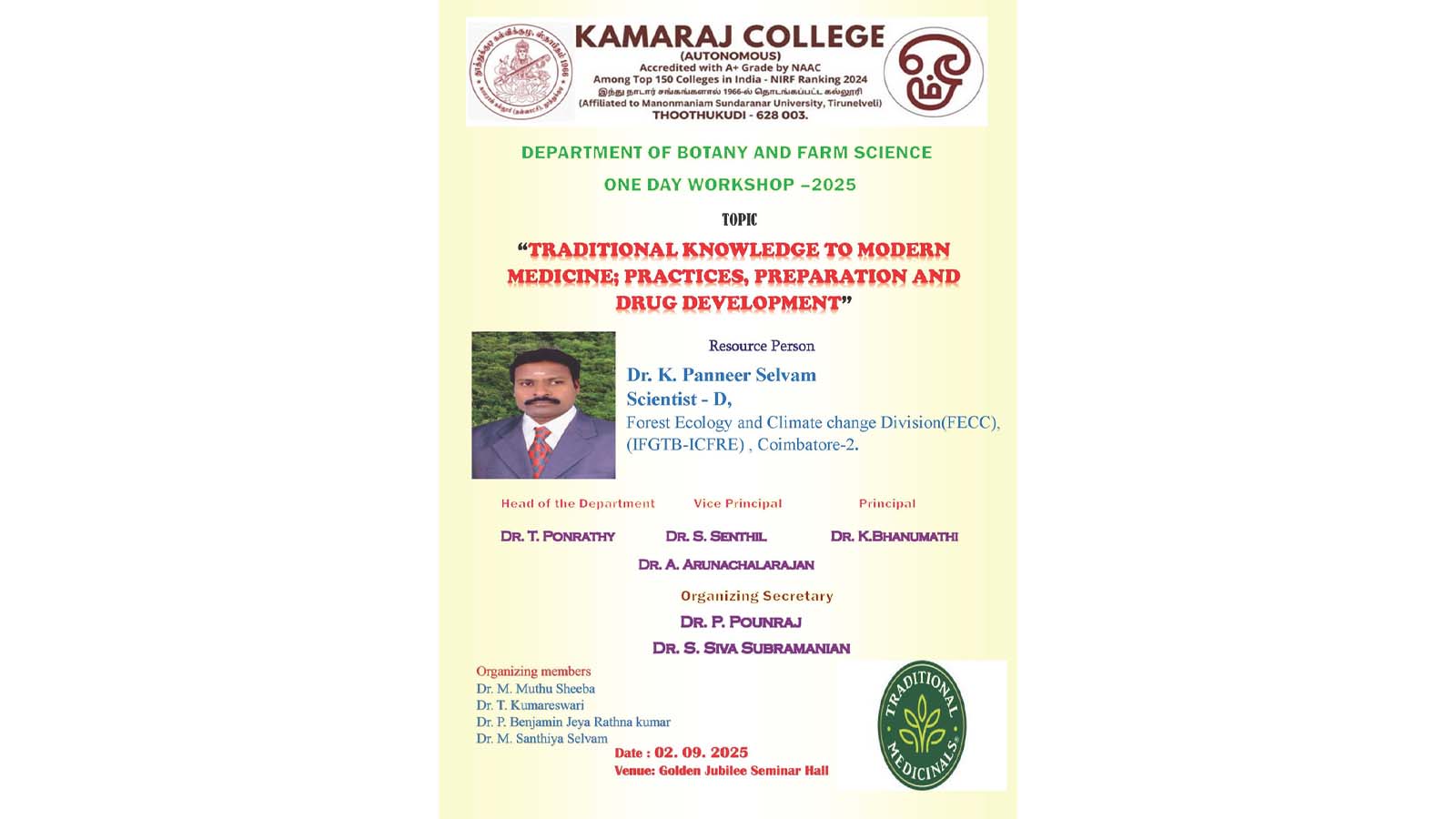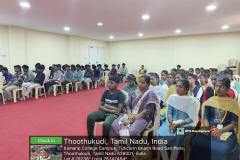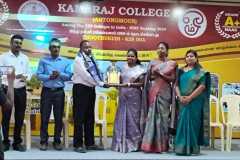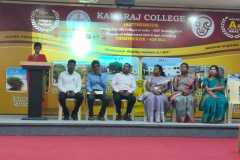
Powerful Workshop on Traditional Knowledge to Modern Medicine – 2025 at Kamaraj College
Workshop on Traditional Knowledge to Modern Medicine
On 2nd September 2025, the Department of Botany and Farm Science at Kamaraj College, Thoothukudi, successfully organized a one-day Workshop on Traditional Knowledge to Modern Medicine: Practices, Preparation, and Drug Development. The event aimed to bridge the gap between indigenous practices and modern scientific applications in the field of medicine.
The session highlighted how ancient herbal remedies and traditional healing practices continue to influence the development of new drugs and modern therapeutic methods. The workshop provided students and faculty with valuable insights into the integration of biodiversity, ecology, and pharmaceutical sciences.
Inauguration of the Workshop
The program began with a warm welcome by members of the student association of Botany and Farm Science. Dr. K. Bhanumathi, Principal of Kamaraj College, delivered the felicitation address, emphasizing the significance of learning from traditional systems while integrating them with modern scientific approaches. She highlighted that the workshop was an important step in enhancing students’ knowledge of sustainable drug development practices.
The distinguished resource person, Dr. K. Panneer Selvam, Scientist – D from the Forest Ecology and Climate Change Division (FECC), IFGTB-ICFRE, Coimbatore, was honored during the ceremony for his contribution to the field of ecology, biodiversity, and medicinal research.
Technical Session on Traditional Knowledge and Drug Development
The core of the workshop was an engaging technical session conducted by Dr. K. Panneer Selvam. He provided an in-depth explanation of the role of traditional knowledge systems in modern medicine. The session covered a range of topics including:
- The importance of indigenous medicinal plants in curing common and chronic diseases.
- Traditional methods of preparation of herbal remedies.
- The scientific validation of folk practices in modern pharmacology.
- Sustainable harvesting of medicinal plants to protect biodiversity.
- The process of converting traditional knowledge into modern drug formulations.
The resource person also explained how researchers identify bioactive compounds from plants and integrate them into mainstream medical research. He emphasized that traditional practices form the backbone of modern drug discovery and continue to inspire scientists worldwide.
Participation of Students and Faculty
The workshop saw the enthusiastic participation of about 140 students and 10 faculty members from the Departments of Botany and Farm Science. The interactive nature of the session encouraged participants to raise questions and share their perspectives. Many students expressed their interest in pursuing research in ethnobotany, phytochemistry, and drug development after attending the program.
Faculty members also engaged in discussions about incorporating traditional medicinal knowledge into the academic curriculum to provide students with both theoretical and practical learning opportunities.
Coordination and Support
The successful conduct of the workshop was made possible through the collective efforts of the organizing team. Dr. T. Ponrathy, Head of the Department of Botany, coordinated the event with dedication. The organising secretaries, Dr. P. Pounraj and Dr. S. Siva Subramanian, provided strong support in planning, execution, and smooth facilitation of the workshop. Their efforts ensured that the session was both informative and impactful.
Impact and Key Takeaways
The workshop served as a valuable learning experience for students and faculty alike. The key takeaways included:
- Understanding the link between traditional knowledge and modern medical practices.
- Realizing the importance of biodiversity conservation in drug development.
- Appreciating indigenous wisdom that has been passed down through generations.
- Recognizing career and research opportunities in the fields of botany, pharmacy, and medicine.
Participants felt inspired to explore the integration of ancient medicinal knowledge with advanced technology for the benefit of society. The event also highlighted the role of educational institutions like Kamaraj College in promoting holistic learning that respects tradition while embracing modern science.
Conclusion
The Workshop on Traditional Knowledge to Modern Medicine organized by the Department of Botany and Farm Science was a remarkable initiative that connected heritage with innovation. With the expert guidance of Dr. K. Panneer Selvam and the leadership of the faculty, students gained meaningful insights into how traditional practices continue to shape the pharmaceutical industry.
The program reinforced the college’s commitment to providing high-quality academic experiences that combine theoretical understanding with practical relevance. By valuing both traditional knowledge and scientific advancements, Kamaraj College continues to nurture students as future leaders in research, healthcare, and sustainable development.



